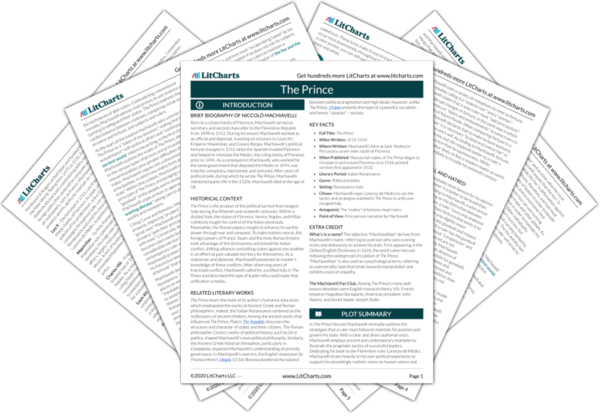Like his fellow Renaissance humanists, Machiavelli celebrated the achievements of the ancient world, championing the writings and accomplishments of Ancient Greek, Roman, and other Mediterranean civilizations. Throughout The Prince, Machiavelli invokes the great deeds and writings of the ancients, citing the Roman emperor Julius Caesar, the Greek historian Xenophon, the Persian ruler Cyrus, and the Carthaginian general Hannibal, among many others. Machiavelli frequently employs well-known ancient examples in order to illustrate the strategies and tactics outlined in The Prince, using the triumphs and foibles of ancient leaders in order to communicate and support his views on contemporary statecraft and warfare. Notably, Machiavelli uses antiquity in order to justify his call for Italian unification at the end of The Prince, quoting the Italian Renaissance poet Petrarch. Petrarch's pronouncement that the "old Romane valour [sic]" lives in the hearts of contemporary Italians suggested that Italians would soon take up the banner of unification, restoring the divided Italian peninsula to its Roman-era grandeur. Likewise, Machiavelli believed that he and his Italian countrymen were the rightful heirs of the Roman Empire and he sought to inspire Lorenzo dé Medici to fulfill his duty to reunify Italy and thus reclaim the rich cultural inheritance of antiquity.
The Ancient World Quotes in The Prince
The The Prince quotes below all refer to the symbol of The Ancient World. For each quote, you can also see the other characters and themes related to it (each theme is indicated by its own dot and icon, like this one:
).
Chapter 3
Quotes
The Romans did what all wise rulers must: cope not only with present troubles but also with ones likely to arise in the future, and assiduously forestall them. When trouble is sensed well in advance it can be easily remedied; if you wait for it to show itself any medicine will be too late because the disease will have become incurable. As the doctors say of a wasting disease, to start with it is easy to cure but difficult to diagnose; after a time . . . it becomes easy to diagnose but difficult to cure. So it is in politics.
Related Characters:
Related Symbols:
Page Number and Citation:
Explanation and Analysis:
The Romans . . . never, to avoid a war, allowed them [their troubles] to go unchecked, because they knew that there is no avoiding war; it can only be postponed to the advantage of others.
Related Characters:
Related Symbols:
Page Number and Citation:
Explanation and Analysis:
Get the entire The Prince LitChart as a printable PDF.

The Ancient World Symbol Timeline in The Prince
The timeline below shows where the symbol The Ancient World appears in The Prince. The colored dots and icons indicate which themes are associated with that appearance.
Preface
...that he has gained through "long acquaintance with contemporary affairs and a continuous study of the ancient world ." The work is a summary and analysis of Machiavelli's hard-won wisdom.
(full context)
Chapter 20
...asserts, "I approve of this policy, because it has been used from the time of the ancient world ." Nonetheless, Machiavelli cites several modern examples that contradict this policy, referencing multiple leaders who...
(full context)
















